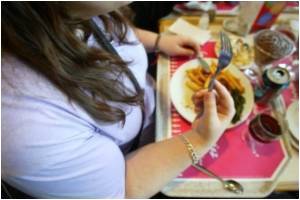Researchers have found the preference for sweet-tasting substances declines in obese rats.

But the flip side is the changed taste preferences, said Andras Hajnal, M.D., Ph.D., associate professor, Department of Neural and Behavioral Science and Surgery, Penn State College of Medicine.
The new study results suggest that post-surgery changes in the gastrointestinal anatomy affect change in the brain that relate to taste.
Obese rats given gastric bypass surgery showed a reduced preference for high concentration sucrose water when compared to obese rats that did not have surgery. Researchers observed a similar decrease in preference with other sweet-tasting substances, but not for salty, sour or bitter substances. Researchers observed no change in preference in lean rats that had gastric bypass surgery.
The obese rats used do not have the ability to produce the receptor for feeling satiated shortly after a meal because they lack the gut hormone CCK-1. As a result, these rats consumed larger meals and, over time, became obese and developed type-2 diabetes. Interestingly, previous studies lead by the Penn State investigators found an increased sweet preference in these rats, which is also often seen in people struggling with weight management.
“It appears that an uncontrolled appetite may get further boost from altered taste functions during development of obesity and diabetes,” Hajnal said. “How much of this vicious circle is due to changes in the neurons inside the brain, which receive taste sensations from the tongue and report to the higher order motivational brain centers, we don’t know.”
Advertisement
The rats that had gastric bypass surgery lost weight comparable to humans who received the surgery — 26 to 30 percent of their weight — and maintained the loss for a long period of time after surgery. Following surgery, the obese rats also showed a higher tolerance for glucose, indicating improvement in diabetes.
Advertisement
The researchers published their findings in the October issue of the “American Journal of Physiology, Gastrointestinal and Liver Physiology.” The National Institute of Diabetes and Digestive and Kidney Diseases and the National Institute of General Medical Sciences funded this work.
“These findings confirm obesity-related alterations in taste functions and demonstrate the ability of gastric bypass surgery to alleviate these modifications,” Hajnal said. “We do not suggest, however, that the findings reported in this paper are the only neural consequences of gastric bypass surgery related to altered postsurgical food preferences. Nevertheless, understanding the underlying mechanisms by which gastric bypass surgery affects taste may help in identifying therapeutic targets that mimic the beneficial effects of the surgery on appetite control and food choices, without the risks and complications of an invasive surgical procedure.”
The study could help in developing safer treatments for the morbidly obese, it is hoped, but further research is needed to determine what causes the neural and behavioral changes, according to Hajnal.
Source-Medindia











